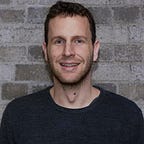How a terrorist attack changed my life
A story of turning trauma into something positive
It was the 14th July 2016. I was living in Nice, Southern France, then. I had a flat right by the Promenade des Anglais. I went out for a walk in the afternoon to observe how French people were celebrating their fête nationale. It was all joyful and colourful. Families and kids all around. Music and sounds created a great atmosphere. After walking around curiously for an hour or so, I went home to have dinner, planning to go back in the evening and watch the fireworks. I was completely unaware of how things would take a dramatic turn that night.
I’m sure most of you know what happened afterwards that night. Luckily, I’m still alive, I wasn’t directly involved in that tragedy, but here I am writing about how that event changed me completely.
Let’s go back a few years first. I grew up in a very traditional southern Italian culture. I am proud of the education I received and the values my family taught me. However, learning about emotions, my emotions in particular, was never part of my upbringing. It’s weird how, in our Western society, we do realise that training our bodies leads to physical health, but we don’t think about training our minds to be mentally healthy.
As a result, I used to have a very rational and pragmatic approach to life, and I used to reckon that psychologists were only there to help people with mental issues. I remember how I even used to argue with my friends who were spending their time going to therapy and were trying to convince me to do the same. I felt completely in control; I thought I didn’t need anyone to help me understand myself. Who knew me better than myself?
Half way through my movie, I heard some loud noises coming from outside, like gunshots…
Until the summer of 2016. When I went back home that night, after having dinner, I realised that I wasn’t in my best mood and that a chilled night watching TV was probably more suitable.
Half way through my movie, I heard some loud noises coming from outside, like gunshots… or fireworks. I didn’t pay much attention. After a few minutes, a friend gave me a phone call and asked me where I was, if I was fine and if I knew what had happened. I had no idea. Some terrorists had just killed over 80 people running over them with a huge lorry.
That happened just a bunch of meters from my place. The street where I used to drive every day to go to work was covered in blood now. The pavement where I used to go for a run was the same. The beach where I used to go for a swim was just next to it. I was shocked. I shut the windows and didn’t go out for a while.
Even for a rational person like me, that was a good enough excuse to start therapy. I thought I’d start therapy to talk about my shock and my anxiety. I wanted to know how I could keep going out and attending crowded public places or going to an airport to catch a flight without that being absolutely nerve-racking for me.
I actually ended up talking about plenty of other topics, including my relationship with my dad or my approach to my mum’s death. It was cognitive-behavioural therapy, so I also learned more about my own behaviours and understand what drives them. But mostly, I learned about my emotional ecosystem. When I started, whenever my therapist asked me how I was doing, my answer was pretty much: fine, thanks. That was as elaborate as I could be when describing my own feelings.
Almost four years have gone by and since then I have made huge progress. I developed a genuine interest in a lot of different topics, including mindfulness¹, acceptance and commitment therapy², shame and vulnerability³, emotional awareness. I have read plenty of books, attended courses and Meetups and learned loads.
I learned that I wasn’t crazy when I was feeling out of my body, not living the present moment and I couldn’t control my anxious thoughts. I learned that the so-called autopilot mode not only is quite typical but can also be very useful at times. I learned how to accept and live fully my own emotions and how to reconnect with the present moment when I need to.
Today, I am still an anxious person, but I have a lot of tools in my toolbox to read my own and others’ emotions. These are amazing tools, not just in my personal life, but in my professional one as well. I can think of several examples where being aware of my own emotions helped me massively in dealing with difficult situations or difficult colleagues.
I can’t stop thanking that moment when I decided to make that change in my life. I think more emotional awareness doesn’t necessarily lead to a happier life, but a more meaningful and fulfilling one for sure.
To wrap up, don’t be like me, don’t wait until something tragic happens before you start looking after your mental health and understanding more about yourself.
